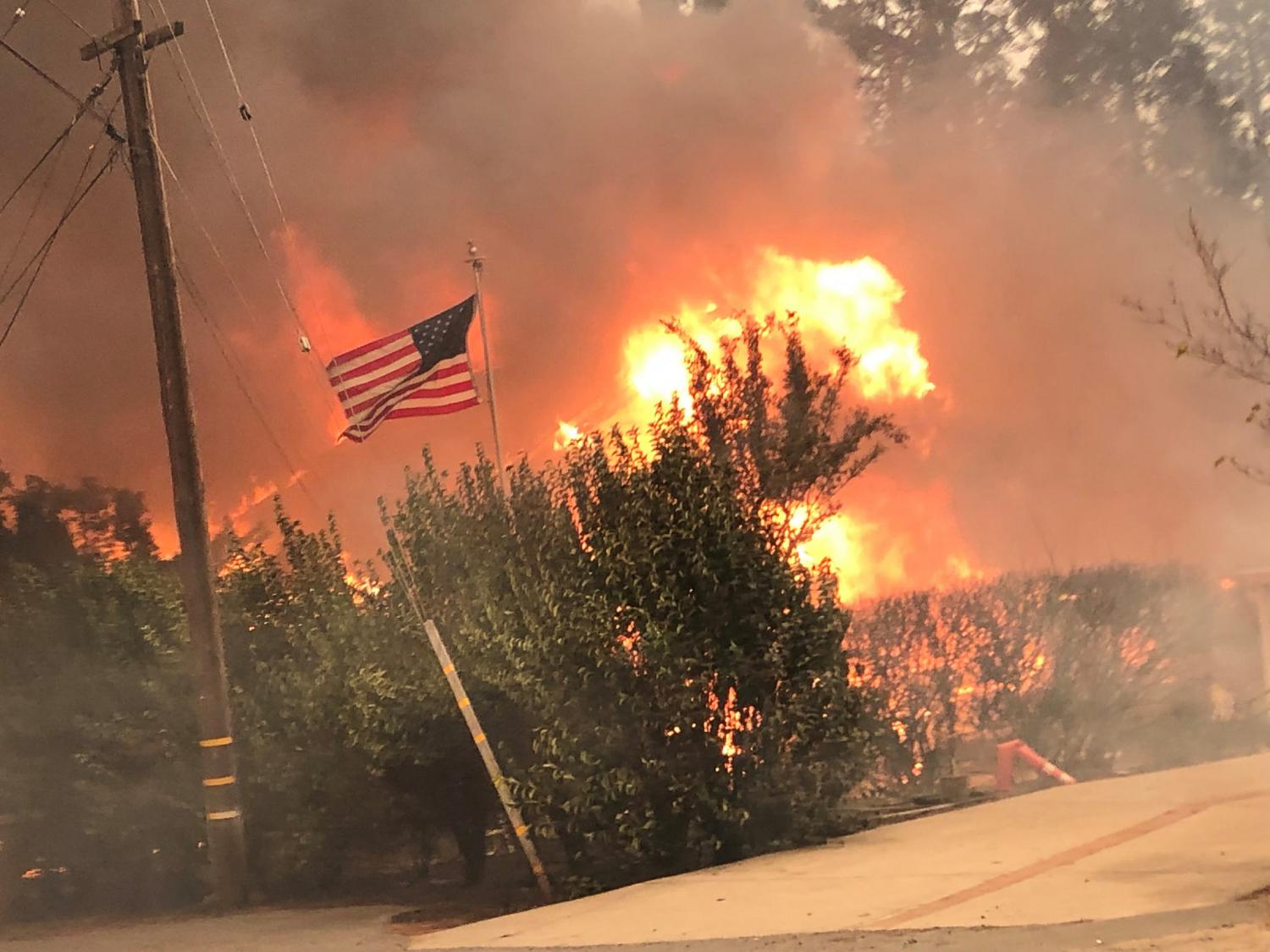
The announcement that PG&E, the giant California utility, intends to file for bankruptcy is a wakeup call for companies to move the economic impact of climate change to the top of corporate agendas.
The announcement that PG&E, the giant California utility, intends to file for bankruptcy is a wakeup call for companies to move the economic impact of climate change to the top of corporate agendas. With a $3.75 billion market cap, PG&E is facing an estimated $30+ billion in lawsuits for damages from the wildfires. That $27 billion gap between valuation and potential liabilities—combined with a drop in share price from a high of $49 to its current $5—should give any C-suite and board the existential shivers. No company wants to be next in line for the Wall Street Journal feature that would follow last week’s “PG&E: The First Climate-Change Bankruptcy, Probably Not the Last.”
There are signs that business is stepping up its scrutiny of the link between climate change’s effects and its economic impact. The concern is now moving the issue from the environmental column to the bottom line, as calculations of risks, costs and profits are increasingly weighed together with the moral imperative. Brands taking stands on climate change are going to be increasingly judged by how well they execute their fiduciary duty re: the issue as well as how responsible they are being in their sustainability practices and strategies.
Exhibit A: Last week, economists called for a tax on carbon emissions in the U.S. in a public letter signed by the last four people to lead the Federal Reserve, 15 former leaders of the White House Council of Economic Advisors and 27 Nobel laureates. The collective statement called for “immediate national action” and described a gradually rising tax whose proceeds would be distributed to consumers as “carbon dividends.”
Exhibit B: “Many of the central economic questions of the decades ahead are, at their core, going to be climate questions,” writes Neil Irwin, a senior economics correspondent for the New York Times. Irwin goes on to describe the myriad details of the daunting challenges of climate change’s “giant impact on the economy” in four key issues.
Exhibit C: Michael Bloomberg has announced six financial sector leaders as the founding members of the new Climate Finance Leadership Initiative. Its goal is to help facilitate the private financing objectives included in the Paris Agreement. Bloomberg, the UN’s Special Envoy for Climate Action, previously co-founded America’s Pledge, launched the American Cities Climate Challenge, and participates in We Are Still In—all efforts focused on climate change from a policy point of view. The CFLI is aimed at the same target through a financial lens.
In this initiative, it’s all about the money, says Bloomberg. “The faster we can accelerate investment in projects that both reduce emissions and create jobs, the more progress we can make reducing the health and economic risks that come with climate change. This initiative will help us do that, by bringing more capital to the fight against climate change.” That call to financial action is echoed by the group’s other founding members, which include the CEOs of AXA, HSBC, Goldman Sachs, Enel, and Macquarie, as well as the Executive Managing Director and CIO of the Government Pension Investment Fund (Japan).
Exhibit D: Finance firms must adopt a “natural capital” strategy to manage risk, warns PwC, in a new report. “In the face of climate challenges, most financial service providers are still failing to assess the extent to which environmental degradation could pose financial risks to their firms.” Adopting a “natural capital approach that integrates ecosystem-oriented management with economic decision-making and development by placing a financial value on natural resources” is the holistic solution to environmental risks, concludes the advisory.
Exhibit E: Refinitiv, the financial data provider (formerly part of Thomson Reuters) that reports on ESG investment, has announced a commitment to its own environmental practices. “Addressing the world’s biggest sustainability issues requires collective leadership that exemplifies the behaviors that will bring about change and empower others to do the same,” said David Craig, Refinitiv CEO, in a statement. “As well as driving changes in investment behavior through our data and insights, this also means caring about our own operational footprint.” Refinitiv’s mission “is to lead the way as a sustainable, responsible business and use the power of its data and insights to help the global investment community shift towards sustainable investments,”added Luke Manning, head of Sustainability and Strategic Initiatives for Refinitiv.“We are increasingly harnessing our core capabilities to drive positive social impact, being smarter with our resources and footprint, and balancing short-term considerations with long-term progress.”
Exhibit F: The World Bank Group is hosting a conference of the Climate Finance Funds at the end of this month. “The Power of 10: Shaping the Future of Climate Action” is convening world leaders to discuss systemic change, including climate finance. This kind of global initiative has tended to be peripheral to U.S. business interests in the past but is taking on a renewed urgency today. This is yet another way to look at climate change through its impact on world economies.
I rest the case—for the moment. Here’s the deal: These and other actions by brands taking stands on climate change signal renewed focus on a bottom line that is both profitable as well as responsible.
IMAGE CREDIT: U.S. Forest Service/Flickr
Be sure to subscribe to the weekly Brands Taking Stands newsletter.














